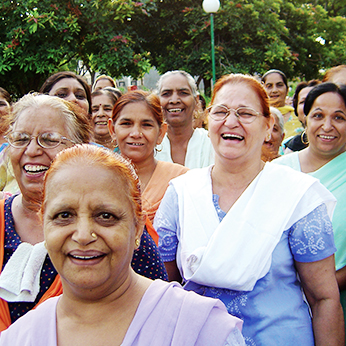
It explores how Laughter Yoga—a form of exercise that involves prolonged, intentional laughter—can potentially help prevent dementia by improving both physical and mental health.
Who Conducted the Study and When?
- Researcher: Keio Hashimoto, affiliated with Suzuka University of Medical Science in Japan.
- When: The study was conducted in 2016 and presented at the 46th Symposium on Life Information Science held from August 24-27, 2018, in Wakayama, Japan.
Objectives of the Study:
The main goal of the study was to investigate whether Laughter Yoga could have preventive effects against dementia by improving both physiological (body-related) and psychological (mind-related) health. Specifically, the researcher wanted to see if Laughter Yoga could:
- Lower blood pressure and reduce muscle tension, which are signs of relaxation.
- Reduce stress levels and improve mood, which are important for mental health.
- Increase oxygen flow to the body’s cells, which could help protect the brain and prevent dementia.
Who Participated in the Study?
- Participants: 15 people (3 men and 12 women) aged 60 years or older.
- Criteria: They were members of the researcher’s Laughter Yoga Club and did not have dementia.
Protocol (How the Study Was Done):
- Before Laughter Yoga: The researcher measured the participants’:
- Blood pressure and heart rate (to check cardiovascular health).
- Muscle hardness (to measure muscle relaxation).
- Stress levels (using a device that measures salivary amylase, a stress marker).
- Mood (using psychological tests like TDMS-ST and POMS).
- Laughter Yoga Session: The participants engaged in a group Laughter Yoga session for 15 to 20 minutes.
3. After Laughter Yoga: The same measurements were taken again to see if there were any changes.
Results:

Blood Pressure Reduction
- Systolic Blood Pressure:
-
- Intervention Group: Dropped by an average of 10.2 mmHg.
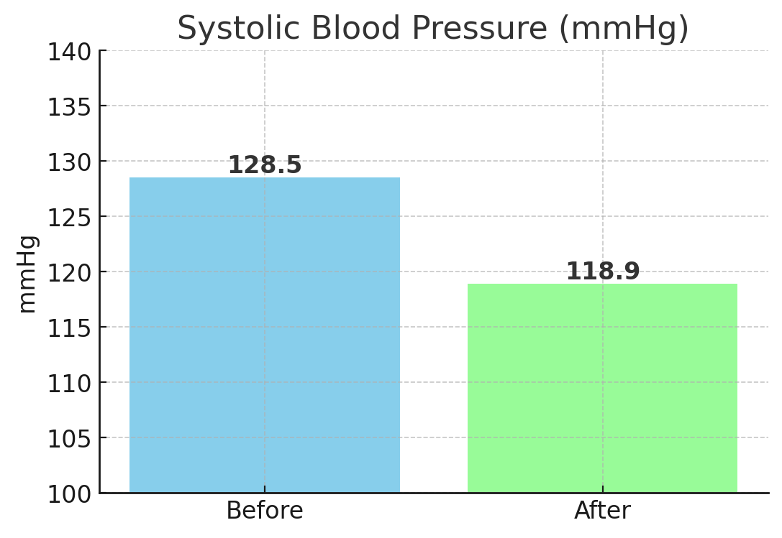
- Diastolic Blood Pressure:
- Intervention Group: Reduced by 6.8 mmHg.

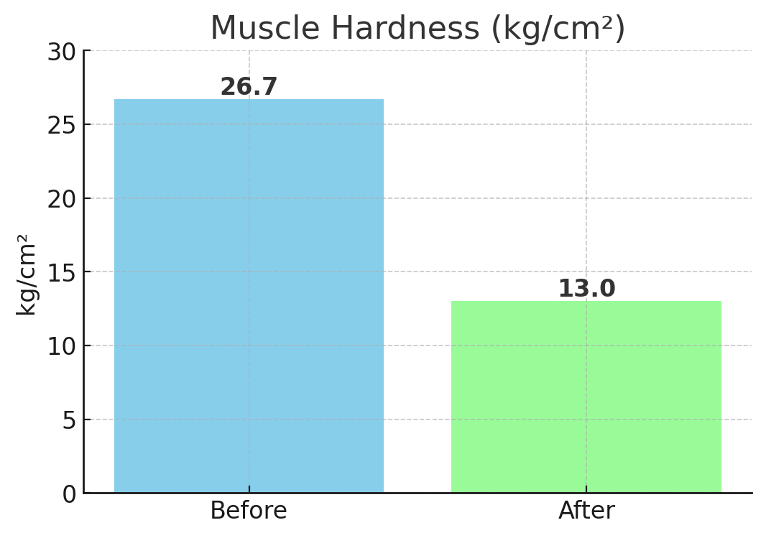 Stress Level Decrease
Stress Level Decrease
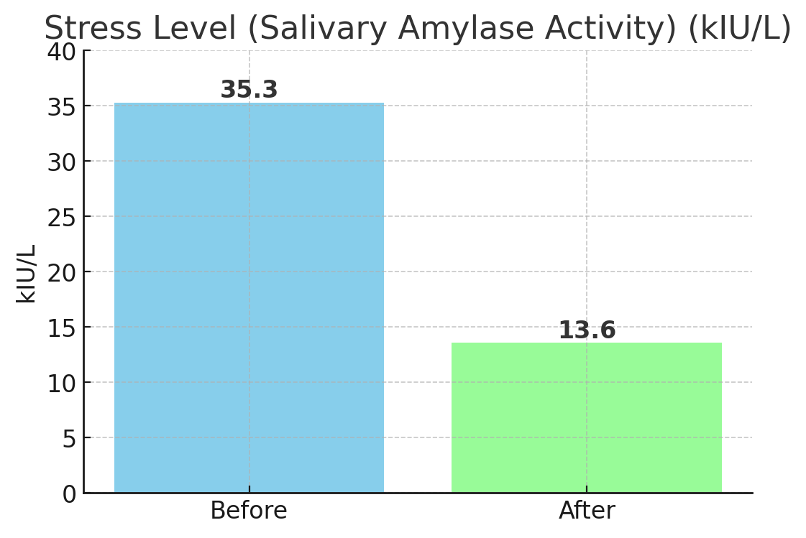 Psychological Parameters
Psychological Parameters
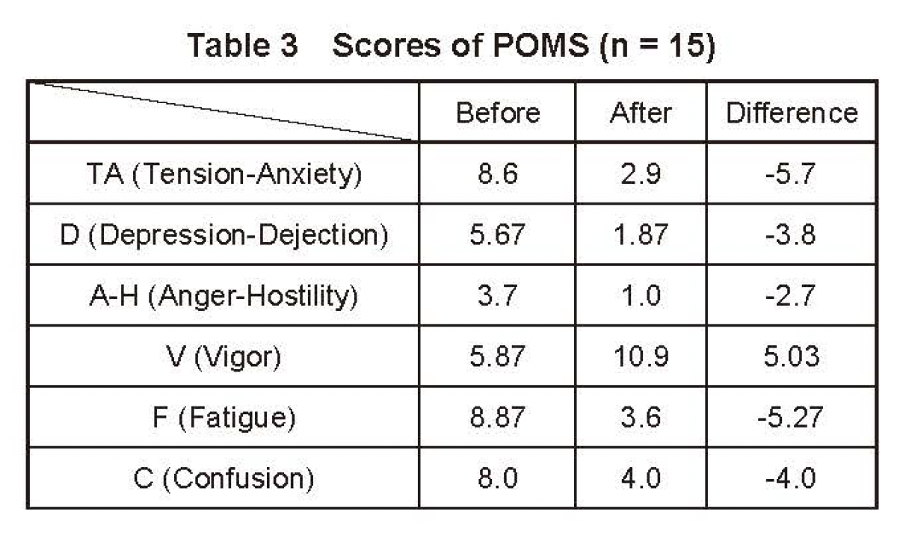
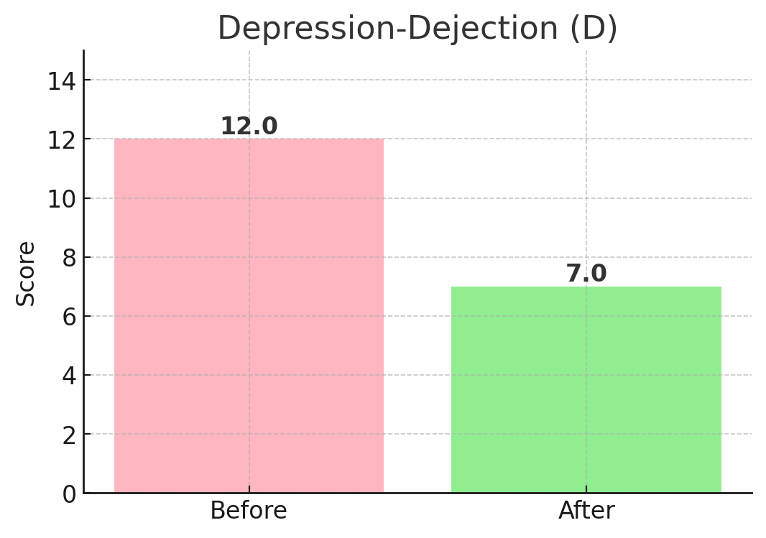
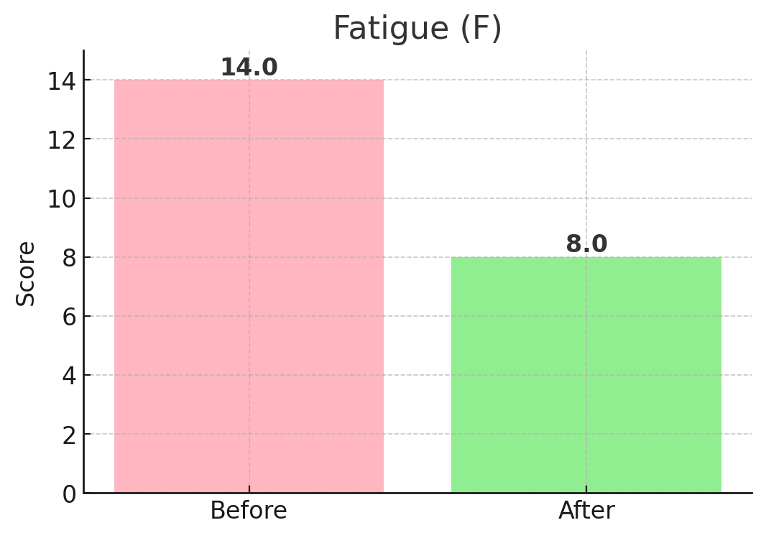
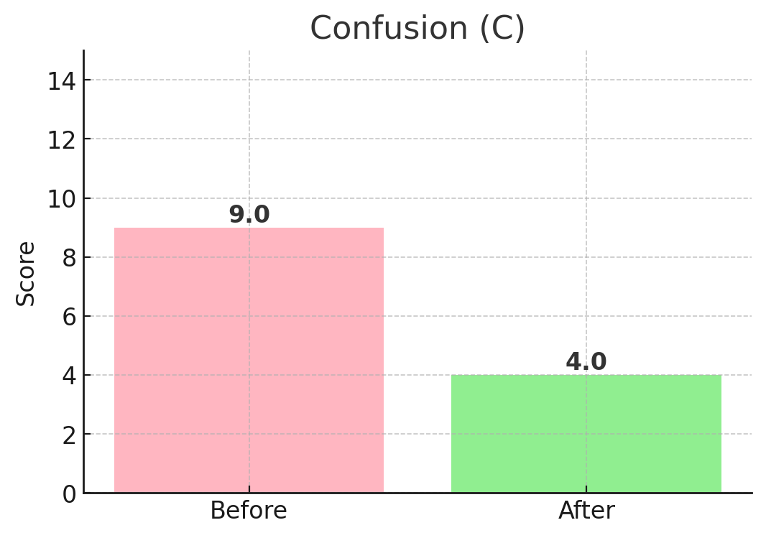
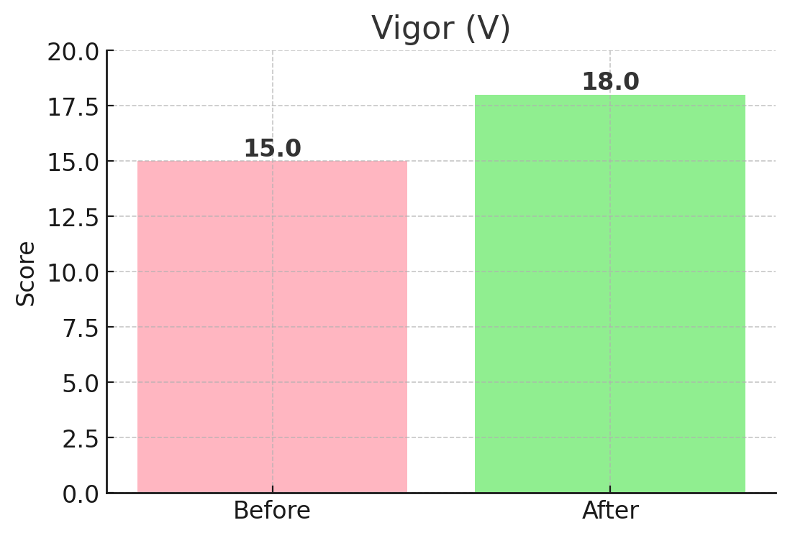
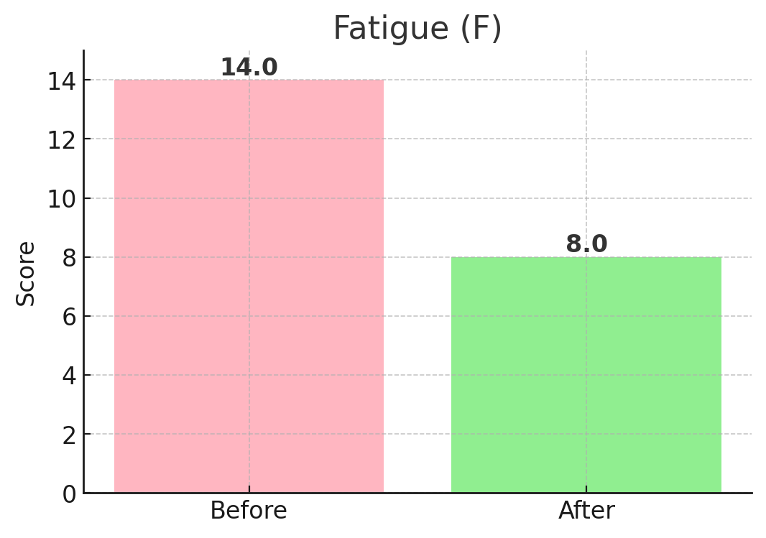
5. Happiness Score Increase
- Intervention Group: Self-reported happiness scores increased by 28.7%.
- Control Group: Saw only a minor increase of 3.9%.
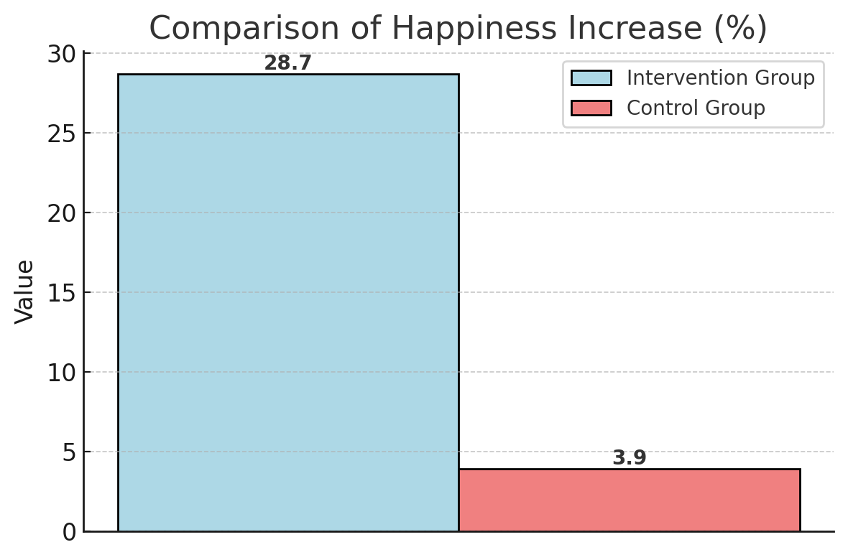
Conclusion:
- The study suggests that Laughter Yoga can help older adults relax, reduce stress, and improve their mood. These changes could potentially protect the brain and prevent dementia by increasing oxygen flow and reducing stress-related damage.
- However, the study was short-term and had a small sample size (only 15 participants). The researcher recommends long-term studies with more participants and advanced brain imaging techniques (like fMRI or PET scans) to confirm these findings.
- The ultimate goal is to use Laughter Yoga to improve the quality of life and daily functioning of elderly people, helping them live healthier and happier lives.
Key Takeaways
- Laughter Yoga had a significant impact on reducing stress hormone levels, improving heart rate variability, and lowering blood pressure.
- The control group saw little to no improvement, highlighting the effectiveness of the laughter-based intervention.
- Participants in the Intervention Group felt noticeably happier and less stressed than those in the Control Group
Please click here to see the original research paper. https://www.lachyoga-sonne.de/wp-content/uploads/2021/12/Change-of-Psycho-physiological-Index-by-Laughter-Yoga-Toward-Preventive-Effects-against-Dementia.pdf
